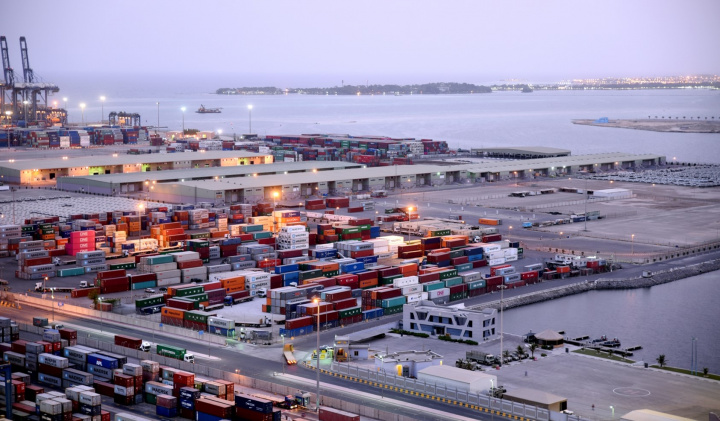The United Nations shipping agency is working “tirelessly” to solve the Red Sea crisis, which is severely disrupting the global transport of goods, according to its head.
Yemen’s Houthi rebels, supported by Iran, have launched dozens of attacks against ships in the Red Sea since November, targeting boats headed for Israel in an act of “solidarity” with inhabitants of the Gaza Strip, which is under heavy bombardment by Israel.
Despite retaliatory strikes by the U.S. and U.K., the rebels are still launching attacks, firing at the U.S. ship “Star Nasia” and U.K. vessel “Morning Tide” on Tuesday.
The International Maritime Organization (IMO), the U.N. agency responsible for security at sea, is working to ensure that “parties continue to talk so that the situation does not degenerate any further, and we can return to a safe maritime environment,” its Panama-born Secretary General Arsenio Dominguez told Agence France-Presse (AFP).
“We are working tirelessly to coordinate action that will lead to a resolution,” Dominguez added from the IMO’s London headquarters.
The region is crucial for the global transport of goods, with around 12% of global maritime trade normally passing through the Bab el-Mandeb Strait, which controls access to the southern Red Sea.
Many shipowners have decided to stop operating in the Red Sea, instead sending their ships on the longer route around the south of Africa.
But “this is not the ideal solution,” admitted Dominguez, as it increases the cost of transport, and ultimately the price of the cargo.
“We now have more than 60% of the annual tonnage that normally goes through the Suez Canal now going around southern Africa,” he explained.
Separately, Egypt’s Finance Minister Mohamed Maait on Sunday said part of the impact on Suez Canal revenue of the Red Sea attacks could be absorbed, thanks to previous growth which had been doing well before the incidents started.
Maait said the government was planning to rely more on the private sector in terms of project expenditure.
“If you look at (project spending) figures for the last seven months, it has dropped by 10%,” he told Reuters on the sidelines of the World Governments Summit in Dubai.
Meanwhile, insurance has also gone up and increased fuel use is creating additional costs.
There is also a human impact, with the crew having to spend extra days at sea, said Dominguez.
The IMO’s objective is therefore to “provide practical and operational measures so that ships can continue to operate,” he added.
Despite the headwinds, Dominguez said he remained “optimistic” about a resolution to the conflict.
Source: Hellenic Shipping News






